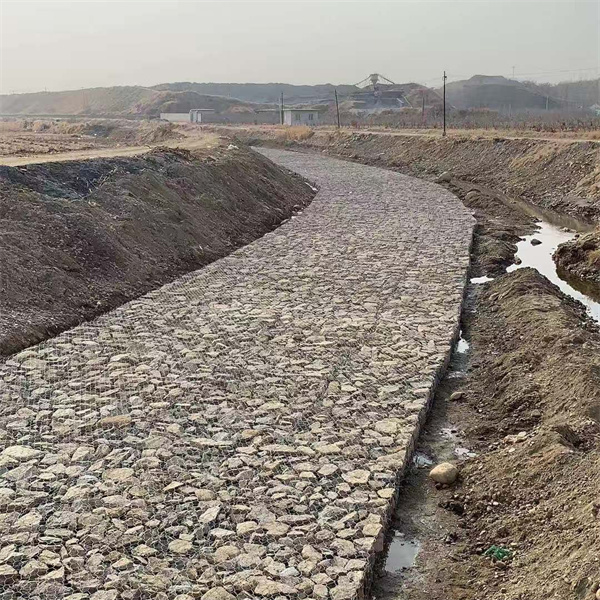Srp . 02, 2024 14:27 Back to list
Quality Wire Mesh Solutions for Gabion Wall Manufacturers to Enhance Durability and Performance
The Role of Wire Mesh in Gabion Wall Manufacturing
Gabion walls serve as effective structures for erosion control, retaining walls, and even decorative landscaping elements. At the heart of their construction lies the wire mesh, a crucial component that ensures the durability, stability, and functionality of these versatile structures. In this article, we explore the significance of wire mesh in gabion wall manufacturing and the factors that contribute to its quality.
Understanding Gabion Walls
Gabion walls are made by stacking wire mesh cages filled with natural stones or other suitable materials. These cages are typically cylindrical or rectangular and can be used in various applications, from stabilizing slopes to creating noise barriers. The adaptability of gabion walls makes them popular in civil engineering and landscaping projects, enhancing environmental aesthetics while providing robust structural support.
The Importance of Wire Mesh
1. Structural Integrity The primary function of wire mesh in gabion walls is to provide structural integrity and prevent the fill material from spilling out. The mesh forms a sturdy barrier that holds the stones in place, ensuring the wall maintains its shape and functionality over time.
2. Durability and Longevity High-quality wire mesh is made from galvanized steel or stainless steel, which enhances its resistance to corrosion and degradation. This durability is paramount, given that gabion walls are often exposed to harsh environmental conditions. A robust wire mesh ensures that the gabion structure can withstand significant pressure from soil, water, and other external forces without failing.
3. Flexibility and Performance Wire mesh offers flexibility during construction. It can be manufactured in various sizes and shapes, allowing manufacturers to tailor gabion designs to specific project requirements. Additionally, the flexibility of wire mesh allows for slight movements in the structure, helping to absorb stress and prevent sudden failures.
wire mesh for gabion wall manufacturer

4. Cost-Effectiveness Gabion walls, with their wire mesh framework, are often more cost-effective than traditional retaining wall systems. The use of local materials, like stones and gravel, reduces transportation costs, while the simplicity of installation minimizes labor expenses. Wire mesh adds to this cost-effectiveness by requiring minimal maintenance over its lifespan.
5. Environmental Benefits The use of gabion walls made with wire mesh is not just a practical choice but also an environmentally friendly one. The porosity of gabion structures allows water to pass through, reducing runoff and promoting natural drainage. This feature helps in maintaining the local ecosystem and preventing soil erosion, making gabions an ideal choice for environmentally conscious projects.
Choosing the Right Manufacturer
When selecting a wire mesh for gabion wall manufacturing, it's essential to consider the quality and specifications offered by the manufacturer. Factors such as mesh gauge, coating thickness, and material type are critical in determining the strength and lifespan of the gabion structures.
Leading manufacturers will provide products that meet international standards and possess relevant certifications. Prospective buyers should look for companies with a proven track record in the industry, as well as a portfolio showcasing their previous projects.
Conclusion
Wire mesh plays an indispensable role in the manufacturing of gabion walls, contributing significantly to their structural integrity, durability, and cost-effectiveness. By understanding the importance of high-quality wire mesh and choosing the right manufacturer, builders can ensure that gabion walls serve their intended purpose effectively for years to come. Whether for erosion control or landscaping solutions, gabion walls remain a reliable and aesthetically pleasing choice, thanks in large part to the role of wire mesh in their construction.
-
Visualizing Gabion 3D Integration in Urban Landscapes with Rendering
NewsJul.23,2025
-
The Design and Sustainability of Gabion Wire Mesh Panels
NewsJul.23,2025
-
The Acoustic Performance of Gabion Sound Barriers in Urban Environments
NewsJul.23,2025
-
Mastering the Installation of Galvanized Gabion Structures
NewsJul.23,2025
-
Gabion Boxes: Pioneering Sustainable Infrastructure Across the Globe
NewsJul.23,2025
-
Custom PVC Coated Gabion Boxes for Aesthetic Excellence
NewsJul.23,2025
-
Installation Tips for Gabion Wire Baskets in Erosion Control Projects
NewsJul.21,2025






